THE COLDEST GAME (2019)
During 1962's Cuban missile crisis, a troubled math genius finds himself drafted to play in a US-Soviet chess match... and a deadly game of espionage.
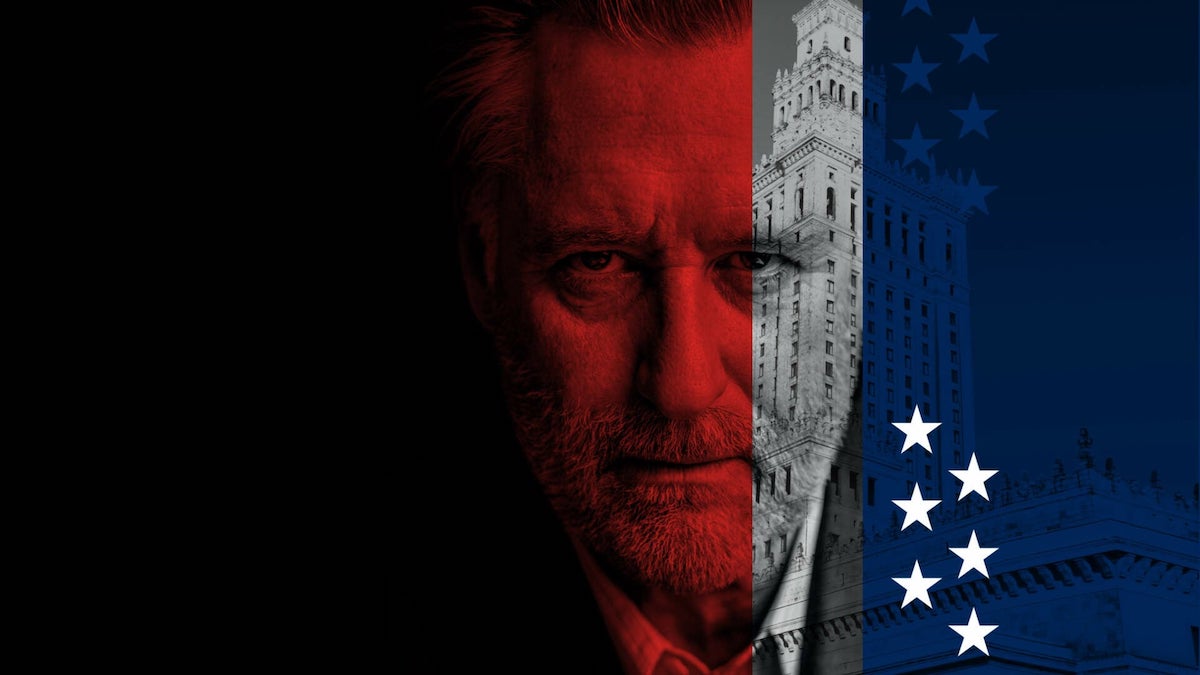
During 1962's Cuban missile crisis, a troubled math genius finds himself drafted to play in a US-Soviet chess match... and a deadly game of espionage.

Bill Pullman was hurriedly drafted to take over the lead role in The Coldest Game after the producer’s original choice, William Hurt, sustained an injury and couldn’t carry on filming. It shows. Pullman is as likeable as always in the role of Joshua Mansky, a US former chess champion who’s now more interested in the bottle than the board, but is recruited at short notice to play a tournament against the Soviet champion.
Yet the actor’s performance, like the film as a whole, lacks depth. Perhaps it’s excusable in the circumstances, but comparing Pullman’s work here with his role in Netflix’s The Sinner (shot either side of The Coldest Game) shows how much he’s relying on his trademark tics and sideways glances to sketch in an eccentric character who’s seen better days.
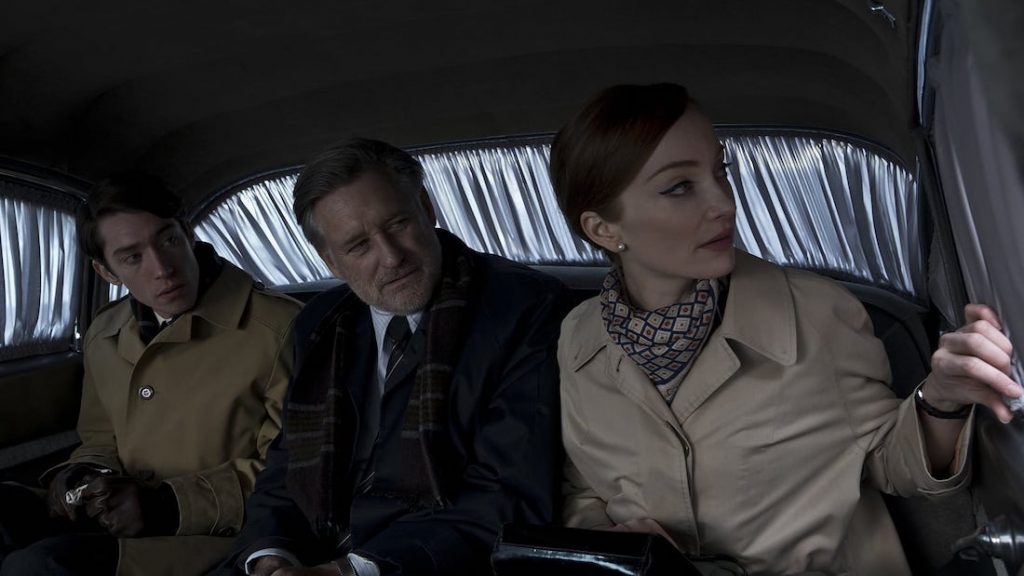
In The Sinner, we feel his character’s foibles are evidence of a rich and deep inner life, and so they add intrigue to Pullman’s detective… but for much of The Coldest Game, they’re all we get from Pullman. It’s difficult to believe in Mansky’s brilliant past as a chess grandmaster, or indeed to accept any of his actions (apart from drinking) as especially plausible. Even so, Pullman stands out in a dull cast, which is a pity because The Coldest Game has a promising concept.
US intelligence, in the form of the cartoonish Agents Stone (Outlander’s Lotte Verbeek) and White (James Bloor), more or less force Mansky to play the tournament in Warsaw against Russian champion Gavrylov (Evgeniy Sidikhin). Mansky wouldn’t, of course, have been their first choice, but they’re desperate because the American chess master originally scheduled to compete has been poisoned by the Soviets. And that’s not only unsportsmanlike but sets the tone for a movie full of grim-faced Communist skullduggery.
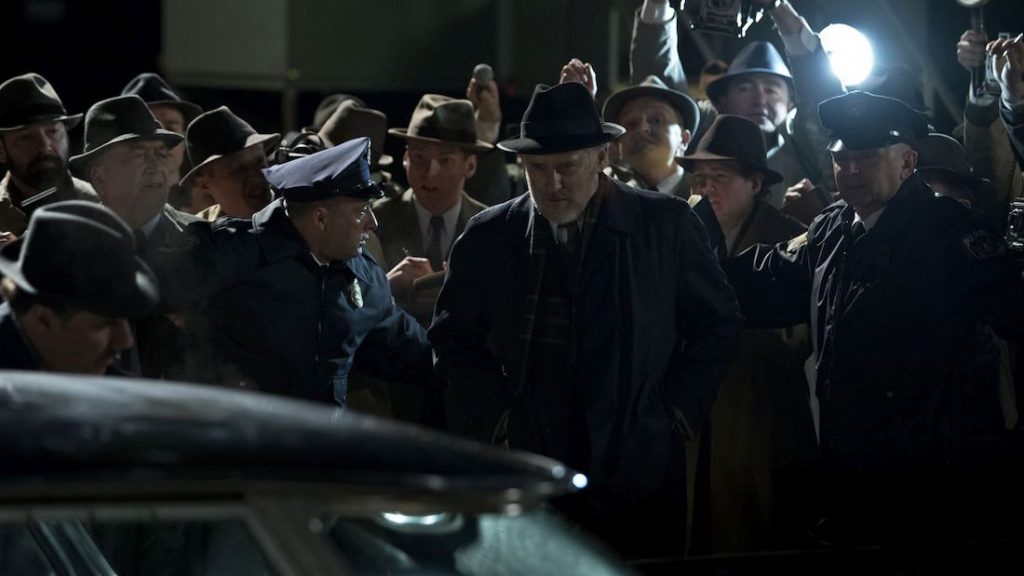
Chess, however, is not the only game afoot at the height of the Cold War—as the title hints. In fact, the actual chess matches hardly figure into the movie, with writer-director Łukasz Kośmicki making surprisingly minimal effort to extract drama or suspense from them. Instead, though we might expect a character-driven entry in the familiar ‘washed-up-sporting-hero-pulled-out-of-retirement’ vein, The Coldest Game veers away from chess itself toward a complicated and not entirely credible storyline involving a Soviet officer trying to pass information to the Americans and, naturally, choosing Mansky as his conduit.
There are some nicely imaginative touches (for example, the genius Mansky drinks to slow his brain down, to make himself “normal”) and some interesting historical details. The hypnotist placed in the audience to distract Mansky as he plays is a nod to a similar tactic actually employed by the Soviets at the Anatoly Karpov-Viktor Korchnoi contest in the Philippines in 1978. And for viewers familiar with Warsaw, this is a Polish movie mostly performed in English, so seeing the area around the Palace of Culture and Science in its half-ruined early-1960s state is fascinating.
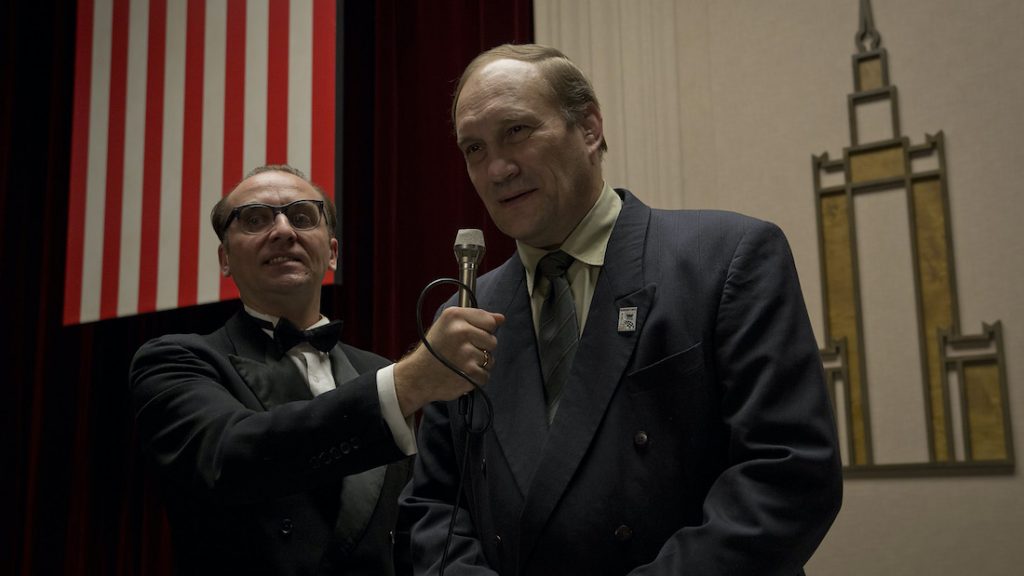
But there are also some distinct over-reaches. The Coldest Game doesn’t have the gravitas to take on all the issues it wants to embrace, including the Cuban Missile Crisis, the moral dilemmas posed by the Manhattan Project, the importance of nuclear disarmament. Indeed, the dialogue, the flat characters, and a certain hastiness in moving from one plot point to another make it feel lightweight even beside a relatively undemanding Cold War drama like Bridge of Spies (2015).
The movie only warms up during scenes with Robert Więckiewicz as the (unnamed) Palace of Culture and Science director—a former Polish Resistance fighter against the Nazis who harbours no love for the new Soviet masters, and who forms a mischievous friendship with Pullman’s Mansky. The scenes between them have genuine humanity and one gets the sense The Coldest Game is speaking from the heart when it addresses this agonising period in Polish history.
The Coldest Game is never dull and lasting only 96-minutes it doesn’t outstay its welcome. But despite its aspirations to philosophical heft, it often runs the risk of being tediously superficial. And, perhaps worse, it’s frustrating that so much time is spent wrapping unconvincing espionage folderol around the chess and the two men’s relationship. They’re two truly interesting plot threads that could have made a more satisfying movie in themselves.

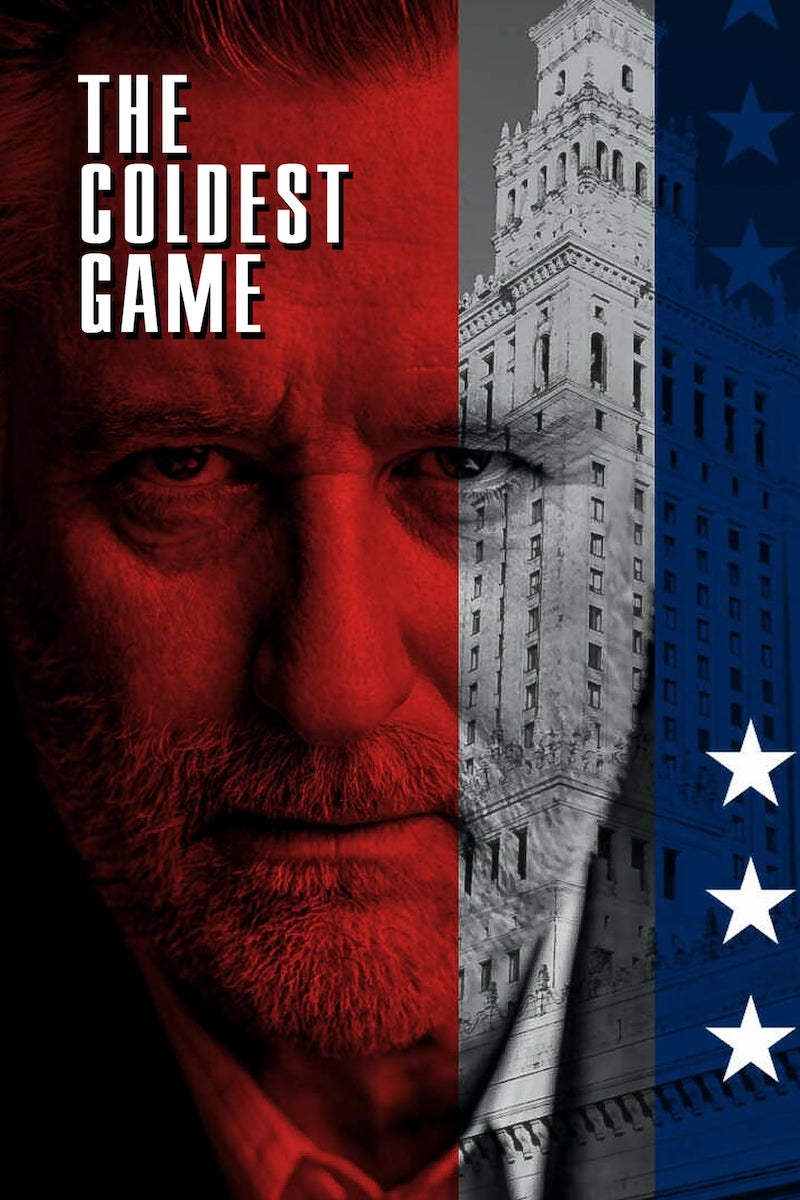
director: Łukasz Kośmicki.
writers: Łukasz Kośmicki & Marcel Sawicki.
starring: Bill Pullman, Lotte Verbeek, James Bloor & Robert Więckiewicz.
